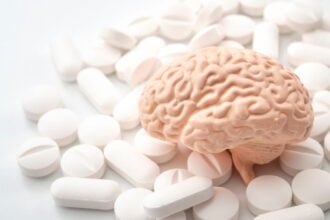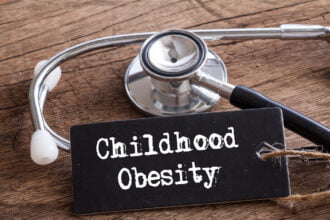One of the positive changes we have seen in the modern workplace over the last couple of decades is the increased focus on topics related to stress and mental health. Stress causes a lot of health issues, so identifying it is very important. Yet, despite all the focus that is given to the idea of preventing stress, not much is said about how to identify it.
This is just as important, since long-term stress exposure creates a lot of health risks. Assessing your stress levels and figuring out whether you need some R&R or a mental health break isn’t as cut and dry as it may sound on paper.
Stress affects people differently, and it can present itself in a variety of ways. On top of that, stress will often build up slowly over weeks and months, making its gradual progress easy to ignore, especially if you are someone who, up to that point, had no experience looking after their mental health.
The good news is that while some symptoms of stress are subtle, others are not. And while each case is unique, some behavioral changes are more common than others, meaning they can work as an early sign of rising stress levels for most people. Here are some stress warning signs you should keep an eye on when looking after yourself and when looking after loved ones who are under pressure. If you notice the following issues, you might want to make some changes to alleviate your stress and anxiety.
1 – Change in sleeping habits
Insomnia is often a consequence of being under too much stress. Your body needs to relax to fall asleep, and stress hormones make it difficult to reach the necessary level of relaxation. Instead of falling asleep, you stay awake in bed for hours, tossing and turning. Or you manage to fall asleep but wake up in the middle of the night, worried for no apparent reason.
The keyword to keep in mind here — and throughout this list — is “change.” For example, some people have insomnia due to stress, while others always have difficulty falling asleep, regardless of external pressures. Therefore, you should only consider insomnia a red flag if having sleep troubles is out of the ordinary for you.
2 – Appetite fluctuations
Stress eating isn’t just a meme — it is a well-documented pattern of behavior. For example, some people react to stress by loading up on high-calorie foods, a behavior that might have evolved as a survival tactic to ensure survival in times of food shortages.
That said, stress eating isn’t the only way to react to stress. Some people lose their appetite altogether while under stress, and they may even take to skipping meals without realizing it often because they are both not hungry and hyper-focused on whatever problem is stressing them out.
The good news is that people’s reaction to food and stress tends to stay the same over their lives. So if you realize that you lose your appetite when stressed, you can keep an eye for that warning sign in the future, as that is likely how stress will always affect your appetite.
3 – Dark mental state
When you’re up to your eyeballs in stress, what will usually happen is that your brain will seek to stomp out positive thoughts and fuel negative ones. The result is an increase in negative views of the future, negative thoughts, insecurity, fear, and self-deprecation. In other words, your head becomes a very unpleasant place to live in.
Of course, life is hard, and not everyone thinks about sunshine and rainbows all the time. But what stress does is inject your negativity with steroids, so you may find yourself more angry, sad, or cynical than usual.
4 – Difficulty focusing
Another commonly reported consequence of stress is “brain fog,” which is a symptom that comes as a result of having difficulty thinking and feeling vaguely detached from everyday life. It’s a hard feeling to imagine when you haven’t experienced it, but it is often caused by stress, overworking, and burnout.
As you can imagine, brain fog can make it quite difficult to focus on tasks. And people dealing with the issue may find themselves working without really paying attention to what they’re doing or getting distracted easily.
5 – Muscle pain
Our body’s stress response is regulated by a variety of hormones, the most famous of which is cortisol. And while those hormones regulate a variety of bodily responses, many of them also have the effect of making the body more sensitive to pain. You may find injuries and chronic pain conditions hurting harder on days you’re stressed out.
Stress hormones can also cause muscle contractions, leading to people holding tension in various areas of the body, which can cause mild and severe pain over time. The most common tension areas are the neck, hips, shoulders, and hands. Clenching your fists or your jaws without realizing it can also be a symptom of stress.
There are many ways to release muscle tension around the body, with mindful meditation and massages being two popular options. You can also relax your muscles by exercising, as can be seen on the sports and fitness section of the SuperMedical website.
6 – Headaches
Stress headaches — also known as tension headaches — are often caused as a result of underlying stress issues, and the pain from these can be severe. While many things can cause headaches and migraines, stress headaches are unique in that they feel as if an elastic band is squeezing around the top of your head.
It feels like your head is being squeezed because this type of headache is caused by holding tensions in certain muscles around your head. Keep an eye out for that characteristic feeling around your head to figure out if the headache was caused by stress or something else.
7 – Chronic fatigue
Do you feel tired all the time despite getting enough sleep? Stress hormones are part of the body’s fight or flight responses. These hormones are meant to prepare the body for emergencies, and as a result, they encourage your body to burn a lot more energy than usual to get you ready. And being under stress for long periods will drain your energy, leaving you permanently tired, especially if you can’t take time off to relax and recover.
Of course, the fact that stress can also cause insomnia doesn’t help with this issue. If you find yourself permanently fatigued, go see a healthcare professional, or see about taking a week off work to recover.
It is also a good idea to avoid caffeine when dealing with this condition. While caffeine can give you a short burst of energy, the substance also makes stress and anxiety worse.









